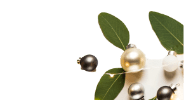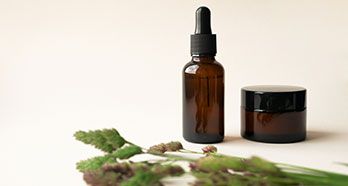Find The Right Herbal Remedy for Your Hay Fever
You would think that hay fever would have something to do with hay, but you’d be wrong.
Hay fever can occur anywhere between January and September and is actually triggered by the pollination of trees, some weeds and grass.
So what is hay fever?
Hay fever basically occurs when pollen grains either land on the conjunctiva of your eye or are inhaled and land on the mucous membranes inside your nose.
Now if you’re allergic your nose and eyes will immediately sense the allergen leaking from the grain causing you to sneeze, rub your eyes or even in extreme cases trigger asthma.
And as you can guess, the more you come into contact with these pollen grains, the worse your symptoms will be.
How can I prevent hay fever?
With more than 15 million in UK suffering from hay fever, and a staggering 9 out of 10 suffers revealing that hay fever leaves them unable to function at full capacity (2% not at all), it is only natural that you want to nip this problem in the bud.
After all, who wants to spend most of the year suffering from runny noses, itchy eyes and incessant sneezes? No one.
Yet before you can even begin treating hay fever, you first need to get to grips with the seasons and recognise which type of pollen you are allergic to.
- Tree allergy – trees usually pollinate earlier than grasses so can happen anywhere between January and June. Common ones include oak, olive, elm, birch (this is 2nd to grasses for being the most common cause of hay fever), ash, hickory, poplar, sycamore, maple and walnut.
- Flower allergy – a lot of us blame our allergies on flowers, yet for the exception of compositae (those belonging to the daisy family), cultivated flowers don’t actually cause allergy problems.
- Weed allergy - common weeds such as mugwort can cause late summer symptoms, usually between July and September.
- Grass Allergy – usually causes symptoms between May and September, although you’ll notice that its pollen counts are higher in June and July, especially on sunny days.
Treatments for hay fever
Hopefully the above information helped you to identify your hay fever triggers so you’re better prepared for the coming season. However, when it comes to hay fever recognising is not enough. You want to be able to stop it, so you can safely step outside without subjecting yourself to all its pesky symptoms.
And unless you plan to stay at home all day with your windows tightly closed, the reality is, you’ll eventually have to go outside.
So what can you do?
Well if you don’t fancy taking an anti-histamine (which is designed to calm down the production of histamines which trigger mucus production and swollen eyes); there are a number of natural herbal remedies you can try.
- Haymax – whilst you can use Vaseline to create a barrier between your top lip and nostrils, the best way to capture pollen and prevent it going up your nose is Haymax. This consists of plant based oils and waxes, which when smeared around your nostrils will stop pollen and a streaming nose.
- Pycnogenol (created from pine bark) – has been found to calm inflammation in your mucus membranes.
- Native nettle – this produces the same results as anti-histamines (helping you to decongest and calm down your allergic reaction, whilst mopping up catarrh) without the drowsiness.
- Chamomile tea bags – you’re probably wondering, how you can protect your eyes from constant streaming. Well one effective tip I’ve heard of is placing soaked chamomile tea bags on your eyes. These will help to calm down irritation and leave you feeling relaxed.
- Vogel Luffa Nasal Spray – can offer immediate relief to inflamed mucus membranes in your nose. You can also get this as a tincture or as a tablet.
- Potters Allerclear Eyedrops - this contains eyebright which can help to soothe your eyes and calm down inflammation and redness.
You can even use individual herbs to help prevent coughing, weepy eyes, a runny nose, irritation in your eyes, nose and throat, headaches and itchy skin.
- Eucalyptus – place some eucalyptus oil into some boiling hot water, and inhale the steam. This will help to break up congestion and help you to breath easier.
- Ginger – can help to reduce inflammation
- Licorice root – similar to ginger, licorice root can ease inflammation
- Rooibos – has been found to have anti-histamine properties. I recommend having it in a tea
- St. John’s Wort – taken in capsules this herb can help to relieve sinus headache
- Ginkgo – can decrease your body’s reactions to allergens which is particularly useful if you’ve got asthma
No related posts.







 Looking for Qualified Advice on Herbs & Supplements?
Read our health guides, quick tips and popular posts on a range of health conditions, products & fitness
Looking for Qualified Advice on Herbs & Supplements?
Read our health guides, quick tips and popular posts on a range of health conditions, products & fitness
 At number 64, our Walworth Road Shops are featured in Time out London’s
100 best shops and we couldn’t be more delighted!
At number 64, our Walworth Road Shops are featured in Time out London’s
100 best shops and we couldn’t be more delighted!

 View our Catalogue online.
It is stocked full of our latest oils, beauty products, health foods & gifts.
View our Catalogue online.
It is stocked full of our latest oils, beauty products, health foods & gifts.